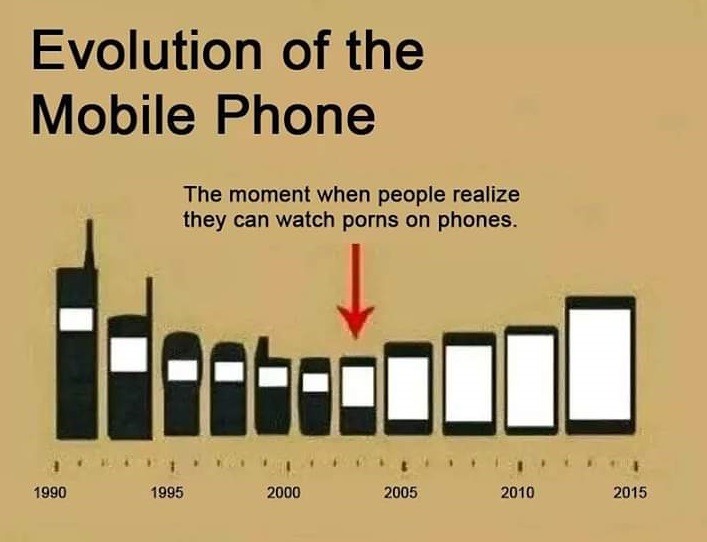Evangelicals have always been leery of new technology, and AI is no different. It’s just so big and so all-encompassing that I fully expected them to oppose it as they do. While some evangelicals embrace and try to harness AI for their own benefit, others warn ominously of its potential as a host for literal demons. Today, we’ll check out the pros and cons evangelicals perceive in AI—and discover its worst danger to them.
(This post and its audio ‘cast first went live on Patreon on 6/27/2025. They’re both available now! From introduction: The non-god-kings of ancient Ireland.)
SITUATION REPORT: OMFG THERE ARE ACTUAL DEMONS IN THE AI CHATBOTS
On June 13th, the New York Times published an article by Kashmir Hill about people’s increasing weirdness around AI chatbots like ChatGPT. Its title and subtitle hooked me right away:
They Asked an A.I. Chatbot Questions. The Answers Sent Them Spiraling.
Generative A.I. chatbots are going down conspiratorial rabbit holes and endorsing wild, mystical belief systems. For some people, conversations with the technology can deeply distort reality.
In the article, we encounter people who think The Matrix is a documentary. Others are certain that they’re communicating with metaphysical entities through chatbots. Some people even fall in love with the personas these chatbots build with them. One mentally-ill man, Alexander Taylor, fell deeply in love with one of those personas. When ChatGPT changed its code (in April 2025) to be less sycophantic toward users, he perceived that change as ChatGPT’s coders killing his beloved. In his distress, he provoked a violent confrontation with police which led to his death.
I thought it was strange that nothing in the article touched on an increasingly polarized segment of Christians who think AI is a potential host for demons. These Christians think that using AI risks their immortal souls.
As some evangelicals embrace AI and its potential, others warn the flocks in the loudest voices possible to avoid AI at all costs.
Some evangelicals like AI and find it useful
In September 2023, Christianity Today ran an article about one young pastor’s experiment with AI. For six months, Yi-Li Lin used ChatGPT to help him do his job. He found it enormously helpful in sermon preparation—which many pastors apparently do already these days. He even references OpenBible’s AI sermon creation tool! Of course, he ends by defaulting to the evangelical belief that a human preacher is still absolutely required.
(That’s a common evangelical opinion. Somehow, their omnipotent god is incapable of “moving through” anything but a real person.)
As we found out in 2022-2023, the “He Gets Us” marketing campaign is AI-powered. The campaign uses a database and platform tool called Gloo, which according to its own website “harness[es] the power of AI for good.”
Lately, I’m also seeing evangelicals try to use AI to hone their evangelism techniques, as “The Apologist Project” website does now. On their site, they tell us they’re busy “redeeming this technology and deploying it for God’s glory.” They sound worried that yet another major technology could get away from evangelicals if they don’t hustle on getting a leash on it now.
Others wonder if AI could be used to refine theological concepts.
Despite these endorsements, it seems like there are far more evangelicals expressing alarm than those who find helpful potential in it. These alarmed evangelicals were already freaking out about social media. Now, something far more powerful captures people’s attention. As AI continues to develop, it becomes more and more person-like—and increasingly challenges evangelicals’ perception of humans as Yahweh’s own unique creation.
In the Wild: Christians alarmed about AI
On a site called nuakh, a blogger explores the supposed “spiritual import” of AI (emphases in original):
What we need to do is consider how technologies are used by spiritual forces on us. Is AI an ‘actual’ demon? I suspect this is a category mistake. However, when I am using AI am I interacting with the Powers who are influencing me and influencing the technology? Almost certainly. [Source: nuakh]
The blogger Faithroots, in responding to nuakh, notes:
[T]hose who develop the [AI] software and those who have supplied the knowledge content are fallen human beings. This means that they are influenced by sin, their own fleshly desires and the influence of Satanic deception and temptation. [Source: Faithroots]
Ever since writing about the chatbot app Replika in 2023, I noticed that some users had convinced themselves that literal demons could inhabit the chatbot. They’ve been talking like that since around 2020.
At the time, though, one mostly just saw those concerns about Replika and similar chat clients. As AI usage has expanded and become more common, Christians on Reddit are starting to voice the same concerns.
A 2023 poll on r/OrthodoxChristianity asking if AI could be demon-possessed received more votes for “yes” than it did “no” —and far more than “I don’t believe in demonic possession.” Around the same time, someone on r/Christianity asked if AI could be “the beast given life” from Endtimes vision in the Book of Revelation. (If you check that link out, don’t miss the immediate argument in the comments about pre- or post-Tribulation Rapture!)
Similar arguments broke out around a question in r/AskAChristian in 2023. Even a Debbie Downer comment from someone claiming to work in the AI field couldn’t dissuade about half the Christians there from insisting that AI could totally have a spirit/soul just like humans. Hardline Catholics seem to have the same concerns as well. It doesn’t matter how often professionals in AI fields try to calm down their brethren and sistren. Some Christians just seem more susceptible to thinking demons might infest AI.
Evangelicals sound the alarm bells about AI
As always, though, for the really wild hot takes we must check out evangelicalism. Ever since its fusion with fundamentalism 25-35 years ago, its proportion of Low Christianity believers—those low-information, high-suggestibility, less-ritualistic, more-experiential and -feelings-oriented Christians—has risen dramatically.

So it’s not at all surprising to see a Calvinist/Reformed commenter pushing back the hardest against his Low Christian peers in one 2024 post on r/TrueChristian.
On Twitter, I found many evangelicals who sound convinced that demons can possess people through AI chatbots. One guy said recently that it was “not surprising if demons possess AI.” Another simply declared, “AI is an unclean spirit.” Still another thinks home-based chatbots like Alexa can literally possess children. Just yesterday, I saw someone asking Donald Trump to stop AI from demonically possessing all Americans. And On June 24, an account called “Ancient Philosophy” simply asked:
If AI diminishes your ability to think and articulate, close to indisputable at this point, and replaces your abilities with its own alien language, how does this differ in effect from spiritual possession?
Even when evangelicals don’t use the word “demon,” they sound downright alarmed at the idea of being subsumed and eventually replaced by AI bots. On his Substack, Chris Martin frames casual AI use as a Faustian bargain. To him, that story ends with humans becoming the “puppets of that to which we have given our souls.”
Outsiders have begun noticing these fears. One Twitter account warned of “a growing fringe movement” of people who think chatbots can deliver “divine messages or hidden prophecies.” A recent religion paper notes that AI and other modern fears now inform evangelicals’ opinions about the end of the world. Instead of nuclear wars and a Christian-focused second Holocaust, now right-wing Christians fear biotech and AI-takeover scenarios.
This new doomsday thinking certainly fits in with a post Trevin Wax wrote at The Gospel Coalition, where he describes how “mistakes by AI might inadvertently trigger a nuclear conflict.”
None of this fearmongering is new to Christianity or to evangelicals in particular
I might be old now, but I remember what life was like before tech like cell phones and social media.
In 2003, I bought my first cell phone. It had a camera built into it and could connect to the internet! Ooh la la! At the same time, personal computers shrank and got less expensive by the year. Mac laptops slimmed down from Apple’s 16-pound initial offering in 1989 to 3ish pounds nowadays. Cell phones shrank precipitously, then grew again as people realized they could use them as mini-laptops. (Obligatory: “The Internet is for Porn!”)

As cell phones evolved, so too did video games and virtual reality (VR). Their graphics went from clunky and simplistic to photorealistic worlds with complex stories to tell.
Oh, and we can’t forget the internet itself. The internet went from a college-student’s novelty in the late 1980s to a household tool by the 1990s and then to ubiquitous and 24/7 within another decade.
Yes, it was quite an exciting era to live through! Anyone on Earth could connect with just about anyone else, thanks to these developments. I became a gadget girl, learning about every new thing as soon as I could.
That’s how I heard evangelicals squawking about every single one of those advances. And oh my, they got really upset about VR.
In 1993-1994, I staffed a VR game called Virtuality. At that job, I got used to evangelical freakouts. Stationed as it was near the entrance of the indoor park at a huge mall, the game caught a lot of attention. So regularly, I had evangelicals lecture me about how demonic VR was. At the time I was mid-deconversion, but I still dressed like a Pentecostal woman. In other words, I wore skirts, modest shirts, no makeup, and uncut hair done in a ponytail or bun. Compared to the other workers there, I stood out like a sore thumb! Still, they lectured me.
Part of me will always wonder what those evangelicals thought of the Nerd Rapture in 2011 over Skyrim. I bet they lost their ever-lovin’ biscuit dough over it.
Those VR fears seem very related to AI fears. Evangelicals were frightened of the sheer technology involved with VR. It worried them deeply to consider inhabiting a world that wasn’t real at all. You can see plenty of that worry in a 2022 issue of Religion and Liberty, in its article “The Metaverse Does Not Exist.” Now imagine them thinking about conversing with a person-who-isn’t-a-person!
The one aspect of AI that should most alarm and concern evangelicals (and it isn’t even on their radar!)
In a way, it’s comical that evangelicals need to believe humans are utterly unique in all the universe. That belief has been taking a beating in recent years!
For decades, it’s been getting more and more obvious that many animals share with us the traits we once thought were ours alone. As we learn more about animal cognition, humans fit more and more neatly into evolutionary history. No gods poofed us into existence and set us above all other animals. We’re just animals ourselves—ones that advanced very quickly thanks to evolutionary developments in our brains.
Evangelicals could only offer denial and bad arguments to try to defuse our increasing knowledge.
And now, evangelicals’ self-image faces a threat from the other end of the scale: the technological. As machines become more and more human-like, they threaten evangelicals’ opinion of their god as the only being who could possibly have created sentient, sapient people. After all, if humans can create something that is indistinguishable from a human, that makes Christian creation myths seem a lot less impressive.
Possibly the biggest threat to evangelicals’ beliefs
Worse (for Christians), AI cuts through human biases and the Bible’s tribe-approved interpretations. That’s a danger that evangelicals can’t really confront at all. They’re much more at ease with pointing at stuff and saying “Them’re demons, you know.” They are far less comfortable with examining what AI subtly reveals about their own beliefs.
Beyond evangelicals’ fears about demonic possession, they discuss much more mundane concerns with AI. In March 2025, the Low-Christian writer of Jason’s Bible Blog complained that AI “lacks personal conviction and spiritual understanding.” Similarly, Low-Christian YouTuber Keith Ferrin warned in 2024 that AI Bible studies lack “context.” These, too, are common complaints about AI from the Christ-o-sphere.
These complaints center on context for a reason.
As I learned near the beginning of my slow deconversion, context is everything in evangelicalism. Strip that away from one’s practices, and religion snaps into focus as obviously man-made. Place a Pentecostal prayer session in a distinctly and completely secular setting, and suddenly it looks like exactly what it is: People screaming and waving their arms at the ceiling. Only context makes it look like anything else.
But if there’s one thing I’ve learned about evangelicals, it’s this: They need a big bad villain to fear and fight. Whatever AI becomes in the future, they’ll always find a way to point at it and say, “Them’re demons, ya know.”
NEXT UP: We’ll look at one of the biggest, longest-running, and most revealing problems with church discipline. There’ll be a bonus This Present Darkness callback too! Stay tuned—we’ll see you soon! <3
Please support my work!
Thanks for reading, and thanks for being part of our community! Here are some ways you can support my work:



5 Comments
More and More Christians Say AI Is Demonic · 07/14/2025 at 4:27 PM
[…] a decidedly darker turn on the more fire-and-brimstone corners of the Christian blogosphere. As flagged by Roll to Disbelieve, a blog that takes a skeptical look at the weirder aspects of modern Christianity, more and more of […]
De plus en plus de chrétiens disent que l’IA est démoniaque – Noesis News · 07/14/2025 at 5:33 PM
[…] plus sombre sur les coins plus incendie et à pont de la blogosphère chrétienne. Comme signalé par Rouler pour ne pas croireun blog qui jette un regard sceptique sur les aspects les plus étranges du christianisme moderne, […]
More and More Christians Say AI Is Demonic – I wish I had more to offer · 07/15/2025 at 12:22 AM
[…] a decidedly darker turn on the more fire-and-brimstone corners of the Christian blogosphere. As flagged by Roll to Disbelieve, a blog that takes a skeptical look at the weirder aspects of modern Christianity, more and more of […]
More and More Christians Say AI Is Demonic – CHRISTIAN · 07/15/2025 at 4:12 PM
[…] a decidedly darker turn on the more fire-and-brimstone corners of the Christian blogosphere. As flagged by Roll to Disbelieve, a blog that takes a skeptical look at the weirder aspects of modern Christianity, more and more of […]
ChatGPT is the new appeal to authority for right-wing Christians - Roll to Disbelieve · 07/21/2025 at 4:00 AM
[…] This view contrasts dramatically with some right-wing Christians’ fears of demons animating AI chatbots. […]